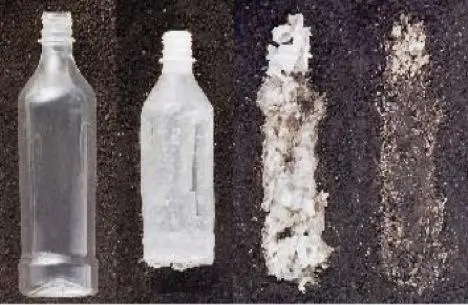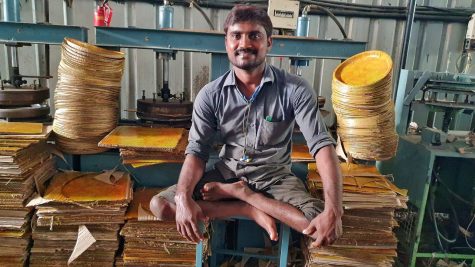The Shift to Biodegradable Plastic

March 28, 2022
If people didn’t use plastic in the wrong ways and would recycle it we wouldn’t have problems with it harming the seas and environment. Although a lot of us don’t realize it we use plastic in almost everything we use. In India there is a company that is trying to eliminate single-use plastic.
A man named Bolla, who has been blind since birth found a company in 2012 to a pioneer sustainability and provide jobs for people that have disabilities. Currently his company has around 400 employees and about a quarter of them that have disabilities. He has about $65 million with funding from investors like Indian industrialist Ratan Tata, Bolla’s company called Bollant operates around seven manufacturing plants that produces hundreds of products from packaging to tableware each month.
 The ban of single-use plastics is to take place during summer and it’s to try and do low utility and high littering potential. This will take away the import of plastic ear-buds, plastic flags, plastic bags, etc. They are trying to do this because the plastic waste in India has double in the past five years and according to the United Nations Development Program in India the country generates 15 million metric tons of plastic waste each year.
The ban of single-use plastics is to take place during summer and it’s to try and do low utility and high littering potential. This will take away the import of plastic ear-buds, plastic flags, plastic bags, etc. They are trying to do this because the plastic waste in India has double in the past five years and according to the United Nations Development Program in India the country generates 15 million metric tons of plastic waste each year.
Bolla said, “Plastic is such a versatile, flexible material,” he says, “So we should shift to making plastic using biodegradable polymers. This is the only way we can tackle plastic pollution.” This statement makes sense because an outright ban on singe- use plastic is extreme because plastic is used for everything so for him to come to the conclusion to use biodegradable polymers would be the best solution since you get that useful plastic but still get the plastic pollution lower and decrease the waste for it.
Bolla’s company is ready for this shirt change and wants a good outcome for it. I think Bolla will be happy with his outcome because according to the market research, India is expected to be the fastest growing market for biodegradable plastics and by the year 2025 they will grow almost $9 billion globally. Maybe with India being successful with this change in plastic all countries will use this so we can decrease the waste of plastic tremendously.
